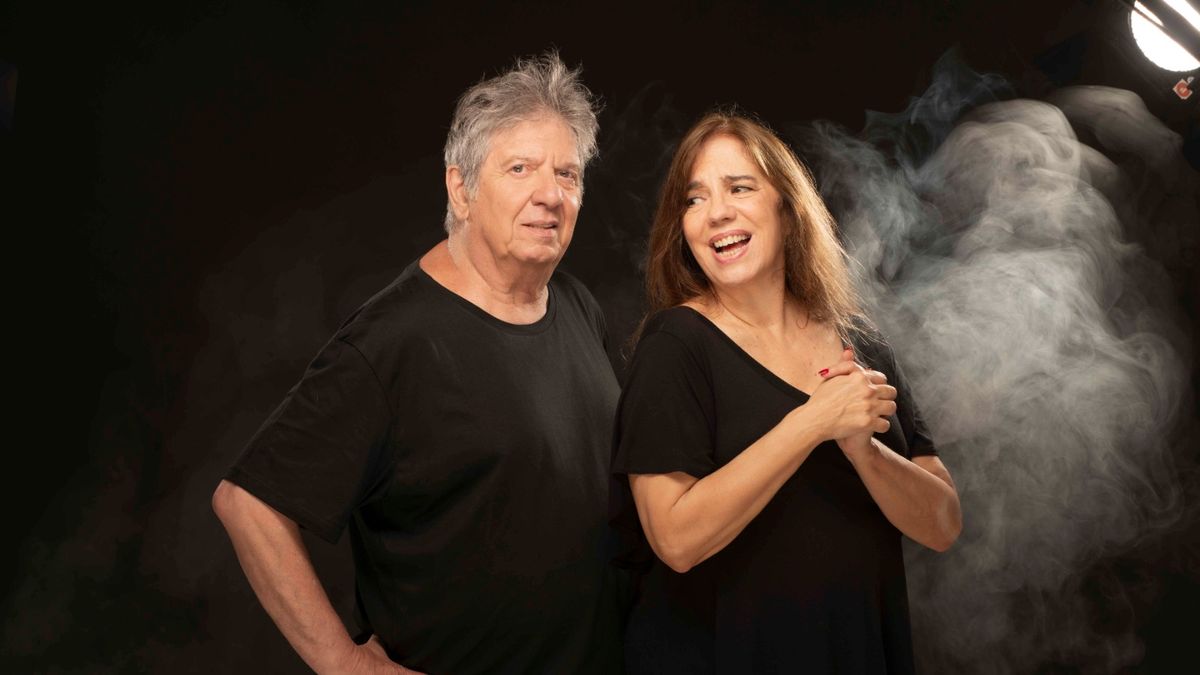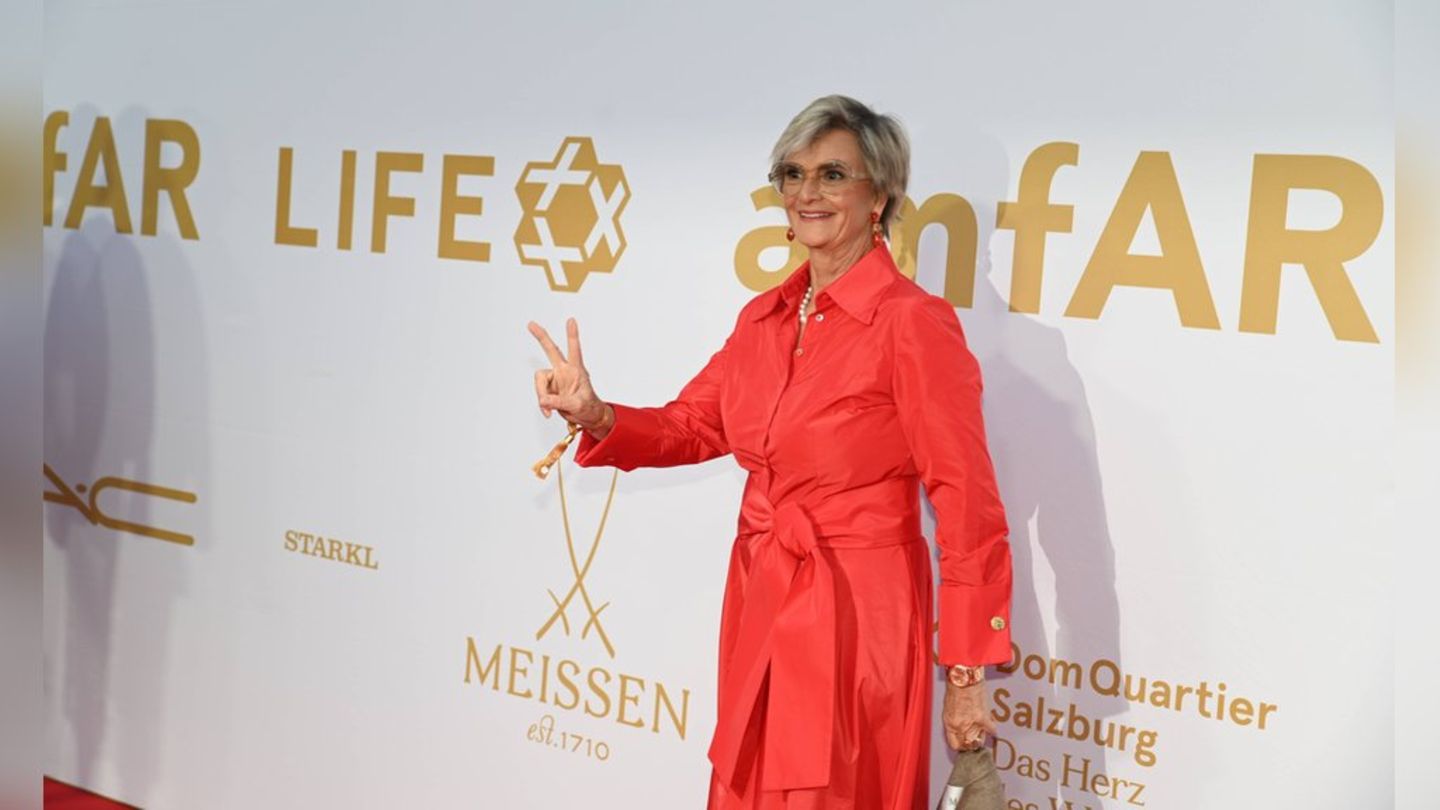“It is always a mystery what attracts the general public, the work has a lot of humor, emotion, humanity, depth, and it is also about love, it has resonances beyond the theme of independent theater,” he says Ingrid Pelicori, who next to Manuel Callau star “Dream of two”, written by Mariano Saba and directed by Daniel Casablanca and Guadalupe Bervith.
The work was born as a project together with the beloved Raul Serrano and after his death it was put on hold until it was resumed and finally premieres this January 7 at El Paseo La Plaza with performances on Tuesdays at 8 p.m. Pelicori plays an established actress and Callau to a prompter from an independent company. We talked with them.
Journalist: What attracted you to this work by Mariano Saba?
Ingrid Pelicori: The work arose from us, Manuel Callau suggested that I do something together. We met him at the end of the ’70s studying with Raúl Serrano and it occurred to him to summon our former teacher. When the three of us started we wanted a work based on our concerns. So we called Mariano Saba whose work we loved, and from all that the work appeared. We dedicated the work to Raúl since when we started rehearsals he died, the project was stopped for a long time and we resumed it with Daniel Casablanca and Guadalupe Bervith.
MC: With Ingrid we had the need to do theater together, Mariano developed this work that speaks about the identity and history of independent theater, as a community, as theater people. The conflicts they experience are interpersonal, the treatment has a lot of humor, acuity and independence.
Q.: It tells a story of theater within independent theater. How does that attract the general public?
IP: It is always a mystery what attracts the general public, we are in a large room, once a week, we believe that there are quite a few spectators who may be interested in this work, I do not know if it is a large audience but the work has a lot of humor, emotion, humanity, depth , and is also about love, has resonances beyond the theme of independent theater. The story resonates with different ages, tastes, it has a lot of play, theatricality, it is very well written and the characters are rich.
MC: The pillars are in the work, in the story, in the direction, everything that Daniel Casablanca and Guadalupe displayed, in addition to the artistic areas and our performance of course. I didn’t see it, I’m part of the avalanche, we enjoyed it in a different way, but how it might interest the public I would like to know in advance. For us it is an attempt to get in tune with the public and with our people. There is a fight for the sense of theater, of recreating the popular imagination. We laugh at the same things and from that event we realize that we are from a part of the world. Despite having many years in the profession, we continue to try, not to play it safe but to do what puts us at risk. That bell that rings and that the public will want to come and enjoy.
Q: What is this utopia and dream of each person like that becomes a dream for two?
IP: It has to do with theater transforming the world, it is a utopia that many of us who made and do theater have. In my youth I participated in open theater with that nostalgia that theater fulfills a more direct social or political function, although I believe that it always fulfills it in some way. That’s why I also participated a lot in theater for identity. This is a group that really existed that was the proletarian theater but here it does not have rigor, the name has changed, there is the dream that has to do with the meaning of theater and life. Love is a disagreement and Cupid even appears, sometimes he has to love one and other times the other, it is a dream of two but it does not become a dream of two together.
Q: How did you work on the setting with Daniel Casablanca?
IP: He sought to take advantage of the artists and the intelligent humor that the work has, it requires theatrical play and in addition to proposing the games and giving us freedom, he also made all the contributions to this work. We worked in a room that allowed us to get closer to the dimensions of the real stage of the Pablo Picasso room and when we disembarked the spatial and stage play was well-oiled.
MC: Daniel knew how to lead this team along the path of creation, something that is not common. After Raúl’s death it was a hard blow and he is irreplaceable but there are roles that can be replaced, Daniel appeared and when we went out to look for someone, a producer appeared, Pablo Pérez Iglesias, who without reading the play but with the story that I told him. wanted to join.
Q: How do you see theater and culture today?
IP: The culture has been attacked and suspected, which I very much regret because it is a beautiful, strong, powerful Argentine trait. But I also feel that those of us who dedicate ourselves to this continue to do it with passion, a desire to resist and honor.
MC: Culture is everything that a people does and builds to establish links and where what each people learns to share with others takes shape. I don’t see support for theatre, cinema, I don’t see a project, this is historic, there were periods of support from the official apparatus but today is not that time. Despite this, there is a force that comes from the sector that makes things continue to be generated, the obstacles range from the economic to the spatial, there are many groups that have been operating for a long time and have needs. I aspire, I wish, I demand an official project to support what is happening with all its diversity.
Source: Ambito
I am an author and journalist who has worked in the entertainment industry for over a decade. I currently work as a news editor at a major news website, and my focus is on covering the latest trends in entertainment. I also write occasional pieces for other outlets, and have authored two books about the entertainment industry.




